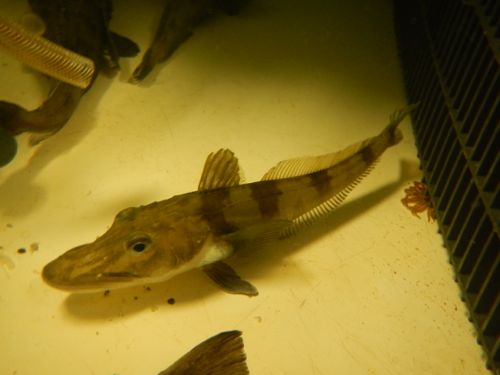
The thrust of the research for this field season for Dr. Kristin O’Brien and Dr. Lisa Crockett is to investigate whether the lack of hemoglobin offers an advantage for the icefish. To recap, perhaps 5 million years or so ago, there was a mutation that affected the icefish ancestor rendering them unable to make the protein hemoglobin. Hemoglobin, packaged in red blood cells carries oxygen in our blood to our tissues. Mutations can be harmful or even lethal to the organism. Not so for the icefish with this one. They are still around and doing well. Mutations can be neutral as in neither harmful nor helpful. Some believe this the case with the icefish. However, given that the icefish are not only still around but have actually thrived and now represent 16 separate species this does raise the question as to whether there is some advantage, perhaps physiological, to not having hemoglobin. Everyone in the team is examining a different aspect of this. They have been down here since mid April. Over the last two field seasons (2009 and 2011), they have found that red-blooded species have higher levels of oxygen-damaged proteins and lipids than their white-blooded relatives. You heard that right. We need oxygen, but, well, it’s complicated. Keep reading…Back to the subject, the group is examining the potential relationships between hemoglobin and oxidative stress in red-blooded and white-blooded fishes.
Stay tuned for the video at the end. There is a lot of information today so I have a treat for you at the end..
2013 Field Season – Do icefish have an advantage?
First a couple of need to know items: Metabolism – the chemical and physical processes in our body involved with using or converting energy. For example, one aspect of that is cellular respiration – the process by which our cells process oxygen (and utilize glucose or fatty acids) to release the energy (ATP) our cells need to function. As our cells use oxygen the process produces something called reactive oxygen species (ROS) including free radicals. These electron hungry molecules are potent enough that some of them can strip electrons away from other molecules (including proteins, lipids and DNA) and damage cells. Free radicals have been implicated in some diseases such as cancer, cardiovascular and neurodegenerative diseases such as Alzheimer’s. Luckily cells produce antioxidants that are like clean up crews mopping up these ROS and free radicals. You have probably seen foods advertised as being high in antioxidants. That’s why you want to have a steady supply of these guys. In a little nutshell, *the protein hemoglobin is iron-based. *The products that result when hemoglobin breaks down can promote the formation of free radicals. *Free radicals can damage the building blocks of cells.
When hemoglobin is recycled, it is possible that its breakdown promotes the production of free radicals and this means oxidative stress. The damage can be incurred during the process of protein and lipid oxidation (losing electrons.) This has been shown to be the case for iron-based proteins like hemoglobin. So if you don’t have that protein, as in the case of the icefish is it possible that there is an evolutionary advantage? Wow! That’s a lot, I know. Read through this again slowly. I have confidence you can grasp all of that. Over the next three weeks we will be checking in on the team to see what will be revealed.
A huge thanks to Jon Charczuk who shot this video!
http://youtu.be/4DKC7uX83Tk


Comments